This is the first in a series of podcasts with Dr. Alex Vasquez, OD, ND, DC. Be sure to check out part 2 and part 3!
Since COVID-19 has been shaking up the globe, people have been thrust into a state of confusion, uncertainty, and of loss of control. These ingredients create a perfect recipe for fear and disempowerment. That is why I have been interviewing somebody everyday on my Personal Facebook Page for their very qualified perspective on the current situation.
I have a very special interview for y’all today because this interview is probably with the most qualified person I could talk to about viruses, about personal empowerment, and about the politics of a pandemic. Dr. Alex Vasquez, DO, ND, DC is my first medical mentor after my brain injury and someone who I have the utmost respect for.
In this section of the full interview, we explore what a virus is, why it is scary and why it is not, and what we can do to protect ourselves. We even talk about censorship and why his book on AntiViral Nutrition was clearly censored as it was pulled by Amazon 2 weeks ago, despite a 5 star rating, being very academically cited with over 270 citations to well respected peer reviewed medical journals, and being a best seller in it’s category.
In response, Dr. Vasquez has made the pdf available for only $3 right now, and you can get that book here:
- AntiViral Nutrition: https://inflammationmastery-com-ichnfm-org.dpdcart.com/product/192836
Dr. Vasquez is the most prolific human I know. He is a doctor of osteopathic medicine, a doctor of naturopathic medicine, and a doctor of chiropractic medicine. He is on the board of The Institute for Functional Medicine, he has published over 300 articles in well-respected medical journals, and he has written over 35 textbooks.
A transcript of this interview has since been published in the International Journal of Human Nutrition and Functional Medicine and you can download the article here: https://www.academia.edu/42330017
Resources:
- Dr. Vasquez’s Links
- AntiViral Nutrition: https://inflammationmastery-com-ichnfm-org.dpdcart.com/product/192836
- Transcript of our conversation: https://www.academia.edu/42330017
- Antiviral Supplements:
This episode is brought to you in part by Feed a Brain. Learn more at feedabrain.com
Wanna be a sponsor of the Adventures in Brain Injury Podcast! Send me a email: support (at) feedabrain.com
Like the show? Support us for $1.00 an episode.
___________________________________________
Cavin Balaster interviews Dr Alex Vasquez • 21 March 2020
Context: This was a supremely spontaneous Saturday interview at the invitation of Cavin Balaster wherein Dr Vasquez
shared some insights and experiences with his published work from 2009 and 2014-2016 on the use of nutrients to
support immunity and to reduce viral entry and replication. This edited PDF transcript is the final version, and the
original 2-hour video is available at https://www.InflammationMastery.com/coronavirus2020interview1
Interview
Cavin Balaster: Dr. Alex Vasquez—Such a pleasure to have you for this interview.
Dr. Alex Vasquez: Likewise.
Cavin Balaster: We’ve been, in each other’s lives for a while. You were the first doctor that I started following
after my injury, and you have been an unofficial mentor to me for a very long time. And I’m so
appreciative of you and really excited to have you actually connect and interview finally.
Dr. Alex Vasquez: Thank you—I appreciate your invitation. I know that you and I have tried to contact each other
back and forth a couple of times over the years. But, like we were just saying I’ve moved around
a lot and just stayed—obviously—very busy.
Vasquez A, Balaster C. Controlled Narratives, Banned Books, Institutionalized Nutritional Ignorance, and the 2020 Coronavirus Pandemic: Cavin
Balaster interviews Dr Alex Vasquez on 21 March 2020. Int J Hum Nutr Funct Med 2020;8:1 https://www.ichnfm.org/journal • Page 2
Cavin Balaster: Right now, you are in Europe. Right? That’s where you live.
Dr. Alex Vasquez: Yeah. [laughing] I’m in protective custody right now.
Cavin Balaster: Not a bad place to be. Who’s holding you hostage?
Dr. Alex Vasquez: Well, right now, the entire global control system, it would appear. Because as you know, my
opinion of this [global “pandemic” situation in 2020 March] is that this is not simply a medical
issue. It obviously has some political components to it.
Cavin Balaster: Right.
Dr. Alex Vasquez: But anyway, we may or may not talk more about that. Why don’t we talk about the history you
were just asking me about, the book, and all the stuff that happened this past week.
Cavin Balaster: Yes, I will. All right. First of all, Dr. Vasquez is a Doctor of Osteopathic Medicine, a Doctor of
Naturopathic Medicine, and a Doctor of Chiropractic. He’s written over 100 articles in peerreviewed journals and written…some 25 textbooks by now?
Dr. Alex Vasquez: Yes, probably more like 35 books, depending on how you do the math.
Cavin Balaster: Dr. Vasquez is one of the most prolific humans I know and extremely accomplished. And I
wanted to get him on to talk about the COVID-19 situation that we have going on right now. And
get some perspective on what it’s looking like from his very educated standpoint. So first of all,
I want to ask you, what is a virus?
Dr. Alex Vasquez: So, viruses are obviously tiny little structures. They are smaller than cells, and they are smaller
than bacteria. Typically, I think of viruses as having three components.
Firstly, viruses contain their own genetic material, obviously. Viruses are basically just little
capsules of genetic material, either in the form of DNA or RNA. They do not have the other
internal machinery that a mammalian cell has. They do not have mitochondria or other
intracellular organelles, and they do not have a lot of internal machinery. They really just have
their genetic material, and sometimes they have enzymes enclosed within them. But they are
mostly genetic material, maybe with a few enzymes.
Secondly, surrounding and protecting the genetic material on the inside, viruses have an external
capsule. Often it is called a capsid that surrounds the genetic material.
The third part that I think is important to understand about viruses is that they always have some
type of structure on the outside which functions as a key, or a receptor, or an anchor—some
way to attach to cells and then enter into them. Viruses can really only function once they
have entered into a another cell, whether that other cell is a plant (in the case of plant viruses,
such as the tobacco mosaic virus), or a mammal—a cat, or a dog, or a human. Viruses have to
enter into a living more complex cell, and they cannot just enter into any cell; they have to attach
in a very specific manner, by connecting their external structure to a compatible receptor or
protein on the host cell. Some type of molecule on the surface of the virus has to fit onto the host
cell, like a key entering a specific lock. That is how the viruses enter into what becomes now the
host cell. This is the “key and lock” model or “anchor-receptor” model.
So again, in review: viruses are genetic material surrounded by a capsule—capsid is the proper
name—and they have some type of structure on the outside that allows them to hook onto
whatever cell they are trying to enter into. In the case of this coronavirus that we are dealing with
in 2020, it has what’s called a spike protein on the outside, and that’s how these viruses attach to
and then enter into human cells. The spike protein attaches onto a receptor—probably more than
one receptor can receive that spike protein—and the one receptor that gets the most conversation
is called ACE-2.
Cavin Balaster: Okay.
Dr. Alex Vasquez: So that’s basically how viruses function. And that’s how they enter into cells. And then they hijack
the internal machinery of the cell. Because like I said, viruses don’t have their own machinery.
They have to use the machinery of whatever the host is.
Cavin Balaster: Mm-hmm (affirmative).
Vasquez A, Balaster C. Controlled Narratives, Banned Books, Institutionalized Nutritional Ignorance, and the 2020 Coronavirus Pandemic: Cavin
Balaster interviews Dr Alex Vasquez on 21 March 2020. Int J Hum Nutr Funct Med 2020;8:1 https://www.ichnfm.org/journal • Page 3
Dr. Alex Vasquez: So they enter into the cell and then they basically take over; this is like a coup d’état or a
dictatorship take-over of the cell. And then they say—if we are to imagine a virus speaking, the
virus announces to the cell, “I’m taking over and you’re going to do my work for me. And you’re
going to reproduce me tens of thousands of times until you die.” And then the cell, which is now
reading the genetic material of the virus instead of the host or human genetic material, produces
a huge quantity of virus particles, then the cell usually explodes and releases all these virus
particles. And that’s how viruses are said to perpetuate themselves—by forcing the host cell or
the human cell to read the genetic code of the virus and reproduce the virus.
Cavin Balaster: Got you. So, it’s basically a hijack situation of your cells.
Dr. Alex Vasquez: Yes—you could think of it like a carjacking. You have got a human cell doing its job, whatever
that is, and then it gets hijacked or carjacked by this virus. And then the virus says, “I’m taking
over and you’re going to do what I want.” So at least that’s how it works for a while, until so many
new viruses are produced that the cell dies, the new virus particles are released, and the cycle
repeats, now on an amplified scale.
That’s pretty good analogy. And then—to complete the metaphor—your immune system
is the police, and your immune system has to come and kill, basically blow up the hijacked car.
That immune response usually kills the human cell as well. But that does not matter too much
unless it is an important and irreplaceable cell such as a brain cell, then that obviously does
matter. Most cells such as in the throat and trachea (windpipe) are easily replaceable; other cells
such as in the brain are permanent and cannot be replaced easily.
Cavin Balaster: Right. Okay, so you wrote a book called the Antiviral Nutrition.
Dr. Alex Vasquez: Right. Right.
Cavin Balaster: Tell me how that came to be?
Dr. Alex Vasquez: Well, obviously I did not just wake up one day and write that book. I had studied for decades. I
will try to give you the short story, but I will try to make it complete. When I was in chiropractic
college, starting back in the early 1990s we had courses in Basic Microbiology followed by
Clinical Microbiology, followed by Public Health and then a few courses in Pathology. I was
somewhat fortunate for my first year and a half of chiropractic college that we had a lot of study
in Microbiology. Many students just ignored the topic because they said, “Well all I’m going to
do is musculoskeletal care.” But I always studied everything to the maximum that I could.
So when I was a chiropractic student studying microbiology, I studied as much as I could
and I wanted to understand this topic to a high level of detail; in this regard, my experience was
probably different from the experience of most of my classmates. After I graduated chiropractic
college, I went straight into naturopathic medical school and there I took another course in
Clinical Microbiology and then Immunology, both classes for which we had an excellent teacher
who explained to us—and forced us to learn and understand—the mechanisms of the immune
system and the immune response.
Because naturopathic physicians are generally focused in on treating infectious diseases
and immune disorders, our study in naturopathic college of Microbiology and Laboratory
Medicine and Immunology was quite detailed, actually much more detailed than we received
when I later attended medical school.
After graduation from naturopathic medical school, I practiced clinical care for six or
seven years, then I went to osteopathic medical school, wherein I studied all of these topics again.
So obviously I had studied Microbiology at this point several times and I had studied it quite a
bit on my own.
Dr. Alex Vasquez: In 2009 I published a book called Chiropractic and Naturopathic Mastery of Common Clinical
Disorders, which has now been largely replaced by the 2016 edition of Inflammation Mastery:
Textbook of Clinical Nutrition and Functional Medicine. In the 2009 book, I talked about treating
viral infections for the first time in my work, which had previously focused on Orthopedics (bone
and joint disorders) and Rheumatology (inflammatory diseases). In that book I started to organize
a treatment strategy for virus infections. I didn’t touch that work again until 2014 which is when
the Ebola crisis was going crazy all over the place.
Vasquez A, Balaster C. Controlled Narratives, Banned Books, Institutionalized Nutritional Ignorance, and the 2020 Coronavirus Pandemic: Cavin
Balaster interviews Dr Alex Vasquez on 21 March 2020. Int J Hum Nutr Funct Med 2020;8:1 https://www.ichnfm.org/journal • Page 4
In 2014, with Ebola virus, acute flaccid paralysis, measles, and all the news about all
these viral infections, I felt the need to address those concerns by telling the other side of the
story which was never being told at that time.
The side of the story that wasn’t being told at that time is obviously the impact that
nutrition can have on the prevention of these diseases and the treatment of these diseases. And
you’ll notice by the way, that that hasn’t changed. In all of the conversation that you see these
days about coronavirus and influenza, you never see the official conversation include nutrition.
Right? No one’s saying on the news, “Oh, be sure that you take your multivitamin supplement.”
Even if it’s a low dose supplement, they should still recommend something. And they are not
doing that at all.
Dr. Alex Vasquez: And for me, that’s a big reveal. The fact that you’re supposed to do everything to take care of
yourself and to take care of your neighbors and your community, and you’re supposed to shoulder
responsibility for this, but not to the point where you would actually take a nutritional
supplement. The real and proven benefits of Nutrition are completely out of the conversation.
Cavin Balaster: Mm-hmm (affirmative).
Dr. Alex Vasquez: And that’s ridiculous. That’s ridiculous and it’s irresponsible. But it also tells you who’s guiding
the conversation.
I was just going to make something up real quick. So here it comes. This is a good metaphor. I’ll
just go with the metaphor that I’ve got right now. Let’s say a person is trapped in a car that’s on
fire. Let’s say the doors are jammed or something, and the person is inside the car, and the car is
on fire. And the official advice for you is to stay in your car and wait for the official fire
department to come rescue you.
You would immediately see that as stupid. And you would say, “Well yeah, my door
might be jammed but I could climb out the window. I don’t have to sit around here and wait for
your help, for your ‘rescue’.”
So why aren’t people being educated about how they could empower themselves and roll
down their window and climb out of the problem? That would be reasonable advice if this were
a fully legitimate emergency. And I’m not saying that it is not legitimate in its entirety, or that it
is completely illegitimate, but certain aspects of this problem and the solutions that people are
being told to follow do not make sense. Why aren’t people being advised about how to help
themselves?
That same fear-mongering and controlled and disempowering official narrative is going
on now in 2020, and it was going on back in 2014. And so I knew I had all this information on
viral infections and nutrition, and I thought to myself now just as I thought to myself then, “People
need to know about this information.” So that’s when I refreshed all the information that I had
and put it in a separate little book, Antiviral Nutrition, and I included the information in some
other larger books because usually I just write big books, not small books. But in this case, I
broke out and wrote a small book, Antiviral Nutrition.
Well, that was 2014. I think it was October 22nd when I published that book. And I just
got a message this week on Tuesday, midnight from Amazon saying that they were pulling the
book off the market. Of course, I was shocked at the absurdity and implied insult of this.
The book has been on the market for six years. It has five-star ratings. It’s a “#1 Best
Seller” in its category. And why is it getting pulled off the market right now?”—nothing has
changed.
We could say quite reasonably that this little book Antiviral Nutrition has three important
characteristics:
First is that it is totally based on research; that is essentially all I talk about throughout the entire
book. All of the therapeutic components are referenced to research. The situation is not that I am
telling people to drink some magic tea and their herpes will go away or something like that. I was
very scientifically responsible in the book. The book has more than 270 citations, mostly to
medical research.
Vasquez A, Balaster C. Controlled Narratives, Banned Books, Institutionalized Nutritional Ignorance, and the 2020 Coronavirus Pandemic: Cavin
Balaster interviews Dr Alex Vasquez on 21 March 2020. Int J Hum Nutr Funct Med 2020;8:1 https://www.ichnfm.org/journal • Page 5
Second, I wasn’t anti-vaccine. I don’t even know if “anti-vax” was a concern back then. But I
guess it was otherwise I wouldn’t have addressed it. I specifically stated in the book, I said, “None
of this is anti-vaccine.” At that time, I didn’t care about vaccines, and I still don’t care about them.
The book was scientifically solid and it was not political. It wasn’t anti-medicine or anything like
that. Anybody who really knows me knows that I love medicine. Some of the best experiences I
had in my training were in urgent care and emergency medicine. In fact that’s what I probably
should have continued studying and pursuing as a career. So it was pure science; it wasn’t antimedicine.
The third component, which may segue to the first one is the book was responsible. I wasn’t
promising anybody a cure. The book talks about all of the common virus infections, and
obviously I’m not going to write one book with one protocol and say, “Yeah, this book in this
protocol cures everything.” I’m not going to do that, and no-one who is responsible would do
that.
So, I was 1) scientifically responsible, 2) I was ethically responsible, and 3) I wasn’t antianything—I was not anti-medicine, and I was not anti-vaccine. Regardless, they banned the book.
Cavin Balaster: They pulled the book. They banned, censored the book.
Dr. Alex Vasquez: … this week. I wrote them back and I said, “What’s the problem here? This book has been for sale
for six years. It’s got five-star ratings. I’m a credentialed professional. It’s not like I’m making this
stuff up. 270 citations.” And they said, “We’ve made our decision and we decide what we publish
and what we don’t. And what we sell and what we don’t and we’re not going to sell your book
anymore.”
Cavin Balaster: Wow.
Dr. Alex Vasquez: I thought that was ridiculous because I’m sure I could go to their store right now and find articles
and books and videos—not simply descriptive information but supportive information on how to
be a sociopath. They’ve got books on hate crimes—not simply describing them but advocating
Vasquez A, Balaster C. Controlled Narratives, Banned Books, Institutionalized Nutritional Ignorance, and the 2020 Coronavirus Pandemic: Cavin
Balaster interviews Dr Alex Vasquez on 21 March 2020. Int J Hum Nutr Funct Med 2020;8:1 https://www.ichnfm.org/journal • Page 6
them. They sell books that advocate hate and racism and pedophilia and all this stuff. But
they won’t sell a book on nutrition for preventing and treating viral infections?
Cavin Balaster: Right, right.
Dr. Alex Vasquez: I mean come on. So that was the situation this week. Like I said, I got that message at midnight
on Tuesday. And then Wednesday and Thursday I took the same files, the same digital files, and
I turned it into an ebook that people can download from the link on my website at
InflammationMastery.com/antiviral.
After six years of 5-star ratings on Amazon.com including status as a “#1 Best Seller” Antiviral Nutrition is now available
as a PDF download from https://inflammationmastery-com-ichnfm-org.dpdcart.com/product/192836
Cavin Balaster: Good.
Dr. Alex Vasquez: … to sell online: https://inflammationmastery-com-ichnfm-org.dpdcart.com/product/192836
Cavin Balaster: Good. I want to talk more about the virus for a minute and then I want to back to the political and
financial things and why your book was pulled and things of that sort. But I want to ask you some
more about viruses.
Dr. Alex Vasquez: Sure.
Cavin Balaster: Talk about what a virus is. What is a coronavirus?
Dr. Alex Vasquez: The basic structure of viruses is the same throughout. I guess we could probably find some
exceptions but generally you’ve got genetic material surrounded by a capsid and then you’ve got
some type of external structure which interfaces with the environment. With coronavirus they
call it the “spike protein” on the outside. Which that probably is a bit of a reveal as well in my
opinion. If you actually look at the structure—and I’m sure you’ve seen pictures of the
coronavirus—they show these extensions on the surface. In my opinion, it’s not really a spike,
it’s more like a club or a clover because it’s got a round tip to it. Spikes don’t have round tips to
them; usually they are sharp. So, I think the name is wrong to call it a “spike.” They could have
called it a club or a clover or a key. Calling it a key would help people understand it more so than
Vasquez A, Balaster C. Controlled Narratives, Banned Books, Institutionalized Nutritional Ignorance, and the 2020 Coronavirus Pandemic: Cavin
Balaster interviews Dr Alex Vasquez on 21 March 2020. Int J Hum Nutr Funct Med 2020;8:1 https://www.ichnfm.org/journal • Page 7
a spike. What do you think? When you think of a spike, what do you think of it? It sounds kind
of dangerous. Right?
Cavin Balaster: Right. Dangerous.
Dr. Alex Vasquez: A spike is something potentially dangerous, but in this case, it is not an accurate description of
the physical structure. A spike is potentially scary. So, I think even the way that the structure has
been described has a tone to it. It’s like you’re supposed to be scared of this thing. Coronaviruses,
back to your question, so coronaviruses are a family.
Cavin Balaster: Right.
Dr. Alex Vasquez: You’ve got the Smiths and the Davises and the Joneses, and you’ve got the coronaviruses; they
are a family of viruses. They commonly infect humans. When people get a cold, so-called
upper respiratory tract infections or a “common cold”, 15 to 30% of those are coronavirus
infections. Therefore, most people of adult age have already had coronavirus infections. But in
this case, this happens to be a coronavirus that has mutated, and we can reasonably state it appears
to be more aggressive.
Cavin Balaster: Is that what the 19 signifies?
Dr. Alex Vasquez: No, the 19 just signifies the year because it mutated in 2019 theoretically, and that’s when it
became an issue. So it’s just an identifier.
Cavin Balaster: Gotcha. And so is SARS a coronavirus?
Dr. Alex Vasquez: Right. So the first SARS coronavirus I believe was identified in 2003. SARS is an abbreviation
for Severe Acute Respiratory Syndrome. The first SARS-1 was back in 2003 and now we’ve got
SARS-2. Again, coronaviruses are common, with several different types. Sometimes they infect
humans, sometimes they infect animals, sometimes they infect animals and then humans.
Sometimes they only infect animals, such as with the pig coronaviruses that only infect pigs.
Coronaviruses are a big family of viruses with a couple of bad actors, some of them are
relatively benign and wimpy and they cause a respiratory infection that lasts a couple of days—
no big deal. Sometimes they mutate—or let’s just say if we’re going to extend the metaphor, let’s
just say they get a bad attitude or they get drunk or whatever, and they want to fight and beat
people up. That’s what’s going on right now. We have a more aggressive coronavirus right now
apparently, than what we’ve had before.
Cavin Balaster: Okay. And it’s more contagious than before is my understanding.
Dr. Alex Vasquez: Well, yeah, we could say that.
Cavin Balaster: Okay.
Dr. Alex Vasquez: But obviously I don’t want to say that. What does contagious mean? That’s what people say about
this virus, but what does it mean? Contagious implies a relationship. Right? A virus can only
be contagious if the host is susceptible. If we were to say “the virus is more contagious” then
we are putting all the blame on the virus and we’re giving the virus all the power. The virus can’t
be contagious if the host isn’t vulnerable. If we’re really going to think and if we’re really going
to use language appropriately, then we can’t just say the virus is more contagious—period, end
of description. You have to say the virus is more contagious among a vulnerable population.
Now, if 100% of people are vulnerable to that infection or that acquisition of the virus, then you
could say, “Well yeah, it’s a characteristic of the virus. Human defense has no place in this.
There’s nothing we can do and we’re just going to die.” But that’s obviously not the situation. Is
it more contagious? Yeah, it probably is. Maybe it is. But are some people relatively immune to
it? Yeah, obviously. Do some people get it and they have such a mild encounter that they don’t
even know they have it? Obviously, yes. In fact, the majority of people have really mild
symptoms or nothing. So, do you care about a virus that’s very contagious if it doesn’t hurt you?
Do you know how many viruses you have in your body right now? Probably in the hundreds.
Cavin Balaster: Mm-hmm (affirmative).
Dr. Alex Vasquez: Do you care about that? Nobody cares unless they are vulnerable to it and unless it is causing
them harm. A recent scientific article states that mammals—including people, humans—have
Vasquez A, Balaster C. Controlled Narratives, Banned Books, Institutionalized Nutritional Ignorance, and the 2020 Coronavirus Pandemic: Cavin
Balaster interviews Dr Alex Vasquez on 21 March 2020. Int J Hum Nutr Funct Med 2020;8:1 https://www.ichnfm.org/journal • Page 8
hundreds up to hundreds of thousands of previously undiscovered viruses.1,2 Does anybody care
about that? No, because we’re obviously living in some harmony with those viruses.
Cavin Balaster: Right.
Dr. Alex Vasquez: So again, is this virus more contagious? Maybe it is. Do host factors play a huge role and whether
that makes any difference whatsoever? Yeah, obviously it makes a huge difference. Everything
has to be contextualized.
Cavin Balaster: Right. What their big concern is that if we’re not susceptible to it, we can still be a host to it and
can we pass it on to people who are more susceptible to it?
Dr. Alex Vasquez: Yes, I think that that’s probably true here. That’s true of most virus infections—they start with an
incubation period wherein the virus is replicating but the immune response has not kicked-in yet
so the person does not feel symptoms even though they are possibly shedding the virus. This is
called asymptomatic shedding, and it occurs in various viral infections including herpes.
Cavin Balaster: And that’s my biggest concern with it: passing it on to others.
Dr. Alex Vasquez: Right.
Cavin Balaster: And so yeah, I’m all about keeping it at bay. And at the same time, there are some extremely
drastic measures being taken to do so. That have huge, huge implications happening worldwide.
Dr. Alex Vasquez: Right.
Cavin Balaster: Do you think these are an appropriate response at the moment?
Dr. Alex Vasquez: Well I’ll give you my opinion. An article was just published by John Ioannidis MD DSc, an
epidemiologist and statistician at Stanford, and he said basically we have no idea what we’re
doing internationally and nationally because not enough testing has been performed either
nationally or internationally.
3 He said in essence, “We don’t have real numbers, we don’t have
good testing. We haven’t tested enough of each given population to know how common is this?”
We don’t have the numbers basically. And if we don’t have the numbers then we have no idea
what we’re doing. We can guess and we can be scared and we can all hide in the closet. But the
fact is we don’t have the numbers. Maybe 80% of the people have this virus and only a small
fraction of those people actually get sick and even a smaller fraction die. If that were the case,
then do we all need to be on quarantine for that reason? I would say probably not. What we should
be doing is testing more people so that we truly have numbers about prevalence—how many
people have been exposed and infected, and morbidity and morality rates—of the number of
people exposed (total cases), how many of them actually get sick (morbidity) and how many of
them actually die as a direct consequence (mortality)—not simply “associated deaths” but direct
causal deaths. Further, we need to think beyond the simplicities and simplifications of handwashing and social distancing. We need to think like the naturopaths do and engage in
strengthening host defenses. What the naturopathic profession has always done is look at host
vulnerability and host factors. Instead of saying “some people get it and some people don’t”, ask
the next question, which is why do some people get it and some people don’t? Not simply age.
Why do they talk about age so much? Why do they say kids are immune and old people get it?
What’s the advantage to that narrative? The advantage to them for repeating that particular
narrative is you can’t do anything about it—it appears like information but it actually does
nothing more than disempower people and give them a sense of confusion and
ineffectiveness. Let’s assume it’s correct that children are relatively “immune” and older people
are vulnerable to this infection. We have enough data to support that conclusion. Look at how
the data is very selectively administered. The data given to people is the data that doesn’t
empower them.
Given that children have been relatively immune to this coronavirus (SARS-CoV-2)
while elders have been clearly more vulnerable, what we should be focusing on in this
conversation are the protective factors that we see in kids that we don’t see in older people, and
the reverse—factors in elders that make them more vulnerable. What happens as people age, as
people get older? Their hormones change; their melatonin levels go down. Kids have a lot more
melatonin than do older people, and as I discuss in Antiviral Nutrition, melatonin has a wide
range of antiviral and immune-supportive benefits. As people get older, and they have other
Vasquez A, Balaster C. Controlled Narratives, Banned Books, Institutionalized Nutritional Ignorance, and the 2020 Coronavirus Pandemic: Cavin
Balaster interviews Dr Alex Vasquez on 21 March 2020. Int J Hum Nutr Funct Med 2020;8:1 https://www.ichnfm.org/journal • Page 9
problems, sometimes their immune systems are just worn down from a lifetime of inflammatory
foods and infections and nutritional deficiencies. Well, we can change those things. Instead of
just saying, “Well, people are more vulnerable because they are older”, we should seek to gain
insight into the disease by understanding these details and differences.
What is age other than years? I mean, obviously it’s years, but what goes along with those
years? More drugs, more diseases, more nutritional deficiencies, quite often, institutionalized
food, things like that. So, you can decipher the language here and break it down and see what
they are telling you and what they are not. I think that if we were to identify those host
vulnerability factors, we could get some insights into how to manage this.
Cavin Balaster: And this is what you’ve done a lot of in your Antiviral Nutrition book.
Dr. Alex Vasquez: Right, exactly. So of course, we’re all watching this, and we’re all trying to follow whatever the
new developments are. But some things aren’t going to change. Just because we have this virus
now for four months doesn’t mean we have to rewrite all of the medical history and all of
nutritional science and everything else. It doesn’t rewrite physiology forever. Many things we
already know and most of those things we can use right now: how to stimulate host defense, how
to strengthen barriers, how to reduce viral replication, how to address the consequences of
inflammatory challenges. We have treatments for each of those components of a viral infection.
Dr. Alex Vasquez: A viral infection is not a single event that exists as an indecipherable phenomenon, but
rather it is a series of events and consequences that we can understand and—largely—
control or at least influence to our favor by use of nutritional interventions.
This past week, I had to reformat and redistribute Antiviral Nutrition after the original
ebook got censored for no reason. So, that cost me two days of work. Today is my first day to
get back to actual science and writing and working on what is going to be another publication,
an extension of Antiviral Nutrition specific to coronavirus, which will probably be called
something really creative like Coronavirus Antiviral Nutrition or something like that; of course,
I will post the details and availability at my website InflammationMastery.com/antiviral. I will
have to publish it as a PDF that people can download, to avoid getting blocked again. Obviously
self-publishing a PDF is much faster, and I can control the price and I can make it available in
two hours or one hour once I get it finished. Whereas, if I go through a publisher and editing and
proofreading and page setting and formatting and designing the cover, that process would cost
me and everyone else who can benefit at least an additional two to three months. That would be
a delay that’s actually bordering on irresponsibility.
I am working on this information now and—yes—I’m obviously looking at everything
with open eyes for a new perspective because anytime I address a topic, I don’t just recycle my
own ideas. I have to look at it from scratch, and I am doing that now with coronavirus. But, while
I’m doing that with coronaviruses generally and this coronavirus in particular, I’m also seeing that
a lot of things are going to be staying the same. Vitamin D, NAC, licorice have already been
documented to have some effectiveness against coronaviruses generally or the particular SARS1 from 2003. Does that mean it’s going to be effective in inhibiting replication and entry of the
SARS-2 virus? It doesn’t mean that, no. That data is now 17 years old and was performed on
other but related coronaviruses. We cannot say that the data that applies to SARS-1 applies to
SARS-2, but it most likely applies.
Cavin Balaster: SARS-1 and SARS-2? This is SARS-2. This is another SARS coronavirus?
Dr. Alex Vasquez: Yes, correct. This is a mutated version of the previous one. I think they are 82% identical. I did
see that number, I hope I’m quoting it correctly, that they are 82% identical.
Cavin Balaster: That’s pretty close to what Dr. Silverman said as well.
Dr. Alex Vasquez: Well, the other thing is, viruses as a group have enough similarity that if we can target one,
usually we can target its relative with some degree of effectiveness as well. But the other
important point is that the Antiviral Nutrition strategy really doesn’t depend on the vulnerability
of the virus. The whole idea of using a host-targeted program is that it targets the defenses and
the machinery of the host.
Vasquez A, Balaster C. Controlled Narratives, Banned Books, Institutionalized Nutritional Ignorance, and the 2020 Coronavirus Pandemic: Cavin
Balaster interviews Dr Alex Vasquez on 21 March 2020. Int J Hum Nutr Funct Med 2020;8:1 https://www.ichnfm.org/journal • Page 10
In contrast, the drug model—and I say this in the book and I said it in one of my recent
presentations—virtually by definition, targets the virus. They want to target the spike protein;
they are going to target the enzymes inside the virus. Why do they do that? That’s the drug
model. They want to sell a different drug for every virus that’s out there. They want to sell
a different vaccine for every virus that’s out there.
If we, collectively, work to simply strengthen host defense against a lot of these
infections, we could probably alleviate or avoid most of them or certainly mitigate and minimize
them, and then we would not be so dependent on antiviral drugs necessarily. Like I said, I’m not
anti-medicine, I’m not anti-drug. I love drugs. That’s why I loved working in Urgent Care and the
hospital Emergency Department when I did, because when somebody comes in with a problem,
that’s the perfect time to rescue them with drugs. You can keep people’s blood pressure up, you
can reduce their inflammation, give them huge doses of steroids. Sometimes that’s what people
need in emergencies. That’s one of the beautiful things about Emergency Medicine.
I’m not saying that we would never use these antiviral drugs, but we could help them
work better if we use nutrition along with them. Because then we’d be supporting the host while
we’re attacking the virus. Perfect. Right now, all they want to talk about is targeting the virus
while leaving the host weak. Well, I don’t think that’s a good strategy. Anybody could get killed
by a Chihuahua if they are weak, but if you’re strong and you’ve got good defenses, then that
Chihuahua becomes irrelevant. That was good metaphor. I’m rocking.
Cavin Balaster: You’re full of them, Dr V.
Dr. Alex Vasquez: I’m rocking the metaphors.
Cavin Balaster: That’s what your nutritional program, Antiviral Nutrition is about: building up the host defense.
It’s about taking care of you—the human, your immunity and your resilience to an infection or to
a particular virus. And I just wanted to say that Dr. Vasquez has this available on his own page,
and I think you have really inexpensive right now, right?
Dr. Alex Vasquez: Yes, it’s $3.
Cavin Balaster: $3. Perfect. I’ll post that in the comments.
Dr. Alex Vasquez: Thanks. $3 is obviously pretty cheap; it should be more like $12 or $15 at least. But that’s what
it is right now. So I’ll keep it that way until April, probably.
Cavin Balaster: Yes, so, we are building up the host defenses instead of trying
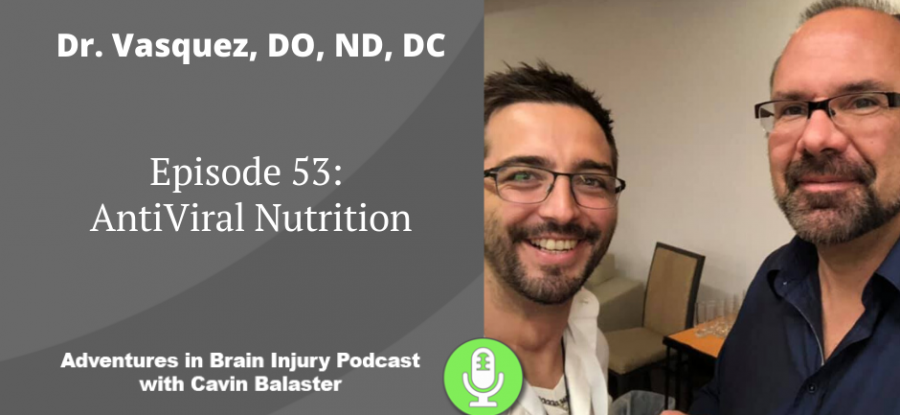
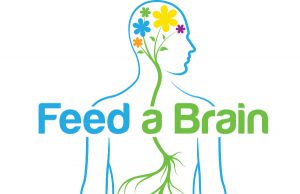

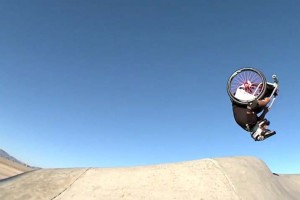
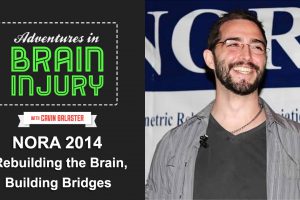

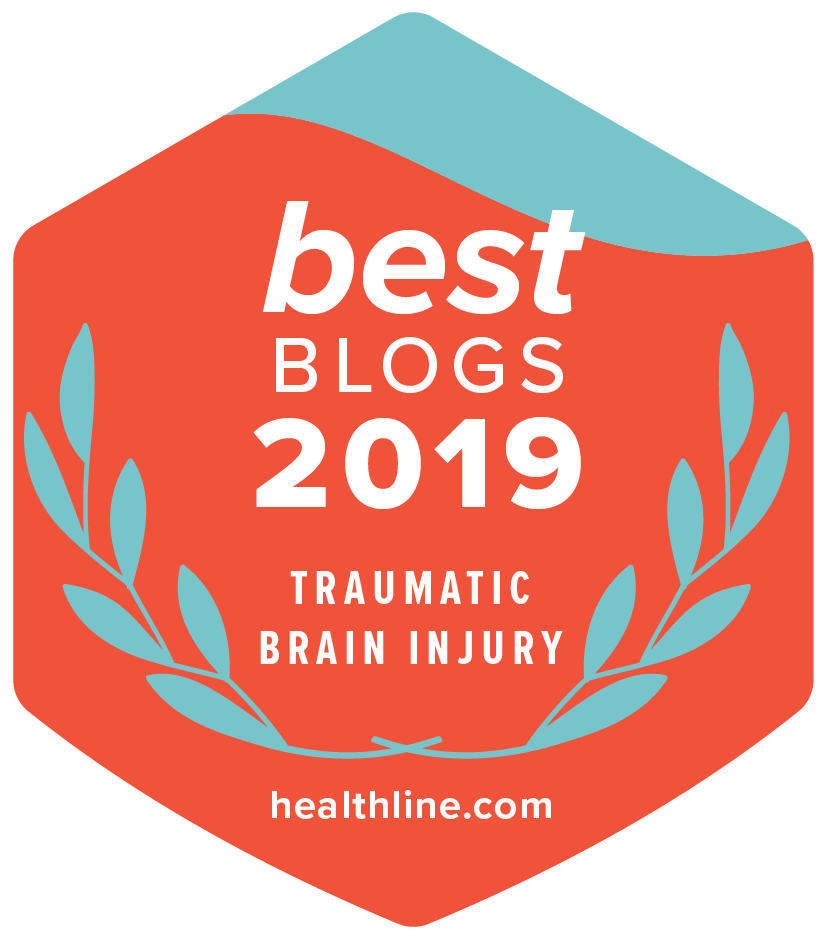
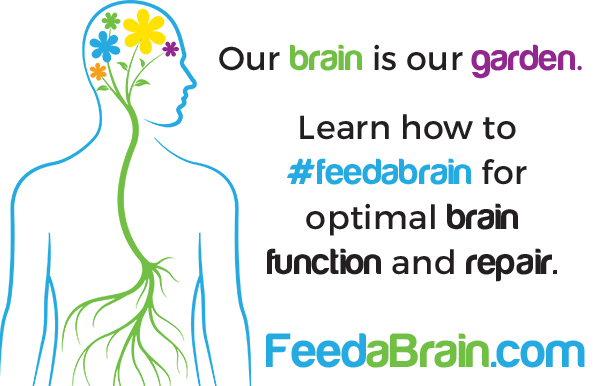
Leave a Reply
Your email is safe with us.